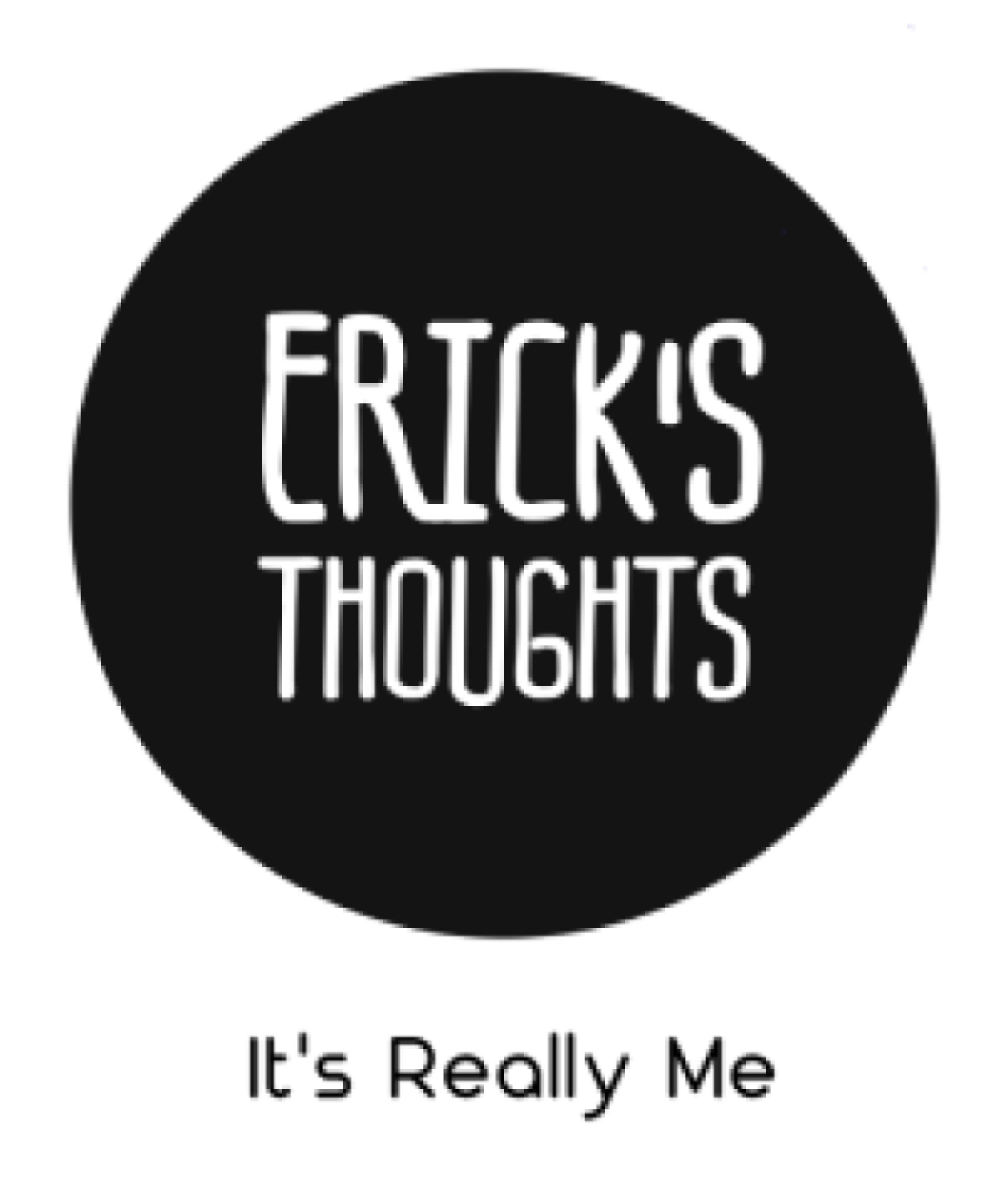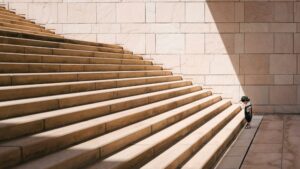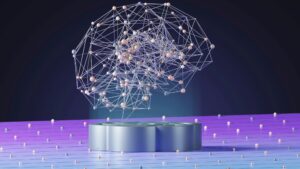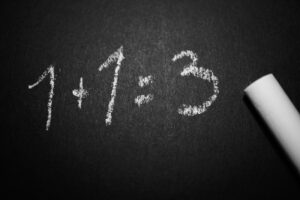This post is a bit longer than I intended or would like so I broke it up into sections – it’s enough to read the main one, although my personal favorite is the part about free will, and perhaps the most practical one is the one labeled practical.
Main Point: The best learning happens through a constant interaction of thinking and action, not just thinking and not just action. Pure thinkers don’t apply their knowledge in the world and that feels pretty useless. Pure doers get stuff done but the results feel like they lack meaning – also not great. I consider learning to be a process that changes you. At any point in time, I think who we are is captured pretty well in how we act. The idea being that if you thought differently or cared differently about something, you would act differently. So, it makes sense to me that if you learn, you will approach the world differently in some way now vs. before.
In my post To Know One Thing You Need to Know a Lot, I talked about how in learning we are always relating new things to things we already know. In a way, the ultimate kernel, or initial starting point, of all our knowledge is experience since it is we who do the knowing and to know anything first we must know we exist (Descartes is famous for saying this, it’s on my list to read his stuff at some point) – everything then gets stacked on top of this. Rough example skipping many in between stages -> I exist, this other person that exists put something in my mouth, I learned about hunger, some things I can’t eat, one of the things I can’t eat is a toy, this toy is red, etc., etc., etc. and eventually we get to a point where we can make complex associations and take it for granted as ‘free standing knowledge’ when really it’s all part of a connected web. The short version is that in order to make sense of new information, we map it onto our existing experiences. The conclusion then is that a person who does not act often does not have much base experience to map onto, and their learning is objectively impaired. This is why we have common wisdom saying things like keep an open mind / fresh perspective (as a way to get more experience from stuff you already do) and get out of your comfort zone (as a way to access totally novel experiences).
Experience is a vital ingredient. To have experience, you must act. Therefore, action is super important. Why does thinking also matter? It’s a bit of a stretch to invoke science here, but an object in motion will stay in motion unless acted upon by an outside force. As humans we like patterns. Once we get in a pattern of action, unless we are forced by some external event to change we’re probably gonna stick to that pattern. If we follow the same pattern, we won’t get new experience and will not learn as much. So let’s introduce thinking. Reflecting on stuff that happens, asking questions, being curious – this may lead to a ‘what if’ situation. What if it’s actually better to do this instead of what I’m doing? So, maybe not all the time, but sometimes your reflection, your study / reading, causes you to act differently, and this creates new experiences and more opportunities for learning. It’s important to note that action can be negative as well as positive – meaning learning can mean not doing or to stop doing things that no longer make sense, not just to do things that do make sense.
Semi-Philosophical Angle: To me, the whole point of learning is to do things better, not just differently. What more important thing is there to do than life. How should I live? This question touches every aspect of my life, and I revisit it constantly (intentionally and by accident). Even if I find out what that how is, the fact I am asking the question implies (1) there is an optimal / right way (in some sense of the word) to live and (2) that I can make decisions to align my life with that how (in other words, that I have free will). For now, I’ll just address free will since it’s enough of an obstacle. Are we really ‘deciding’ when we decide to change our life? Complete free will means we select the specific thing we are doing instead of the infinite other possibilities. In order to do that, I think we’d need to know what all of our options are, not just the limited subset that is limited based on our current level of knowledge / learning.
The short (and common sense) conclusion here is the more we learn, the more options available to us we uncover, and hence the more free will we will have. Based on the recursive nature of how we learn, it seems logical that we can never know everything, so we will never have perfect free will. That’s probably okay, practically. It’s also a question of how much do you care that you are ‘choosing’ the life you have.
I want to believe in free will, and I want as much of it as I can get. This is my only chance at life, my only chance to be me. I want to be the best version of myself this time, and I think I need learning (and free will) to achieve that. Let’s consider the factory default way I was born – complete with its associated thought patterns and things I care for – to be State A. Let’s consider how I ‘want’ to be, who I would really choose to be, as State B. Maybe I got lucky in the grand chaos of the universe and when I was born my State A perfectly aligned with my State B. I find this highly unlikely. While I can’t prove it, it feels statistically certain that State A and B do not align at birth, meaning we must work to move from State A to State B via life actions. The most efficient path from A to B is through learning – acting and thinking. If you don’t learn, most of your life will really be lived in State A – is that okay with you? I have totally met people whom I believe when they say they don’t care, they just want to enjoy life. Frankly, accepting that is also a choice – granted one of limited perspective but still a choice. Free will is not important to everyone.
I think the only people that attain free will are the concept of the Buddha or a philosophical ideal like Nietzche’s Superman, but it’s doubtful they can exist in real life. I get what they are trying to say, and intuitively I can imagine such a person existing, I just find it very hard to believe. I’m certainly skeptical of our current real world versions like the Dalai Lama who often poses with gifts from celebrities as if fame were a valid value proposition for associating with humans living on a higher plane. Just for fun, I looked up a list of enlightened humans and it’s just interesting to think how you even come up with such a list. It’s mostly populated with names from India, which makes sense given the term is more significant in that culture – it’s all a bit arbitrary at the end of the day. The ‘path to enlightenment’, perhaps the path to ultimate free will, if real, is universal and not uniquely arrived at by any formalized / described dogma. It’s more likely any sophisticated belief system is just a crude proxy (based on the limit of our human capacity) that captures elements of the universal truth. At least that’s my intuition.
Practical Comments: A few add-on notes on learning. (1) Learning is not a one-time input / output. It’s not ‘I put myself here I’ll come out with X knowledge’. It’s a loop, and it’s active. Showing up is not enough, there are lots of people that show up for school or a training program and never change their lives. That person is pushing the responsibility for their life to change on to some other person / entity – which is being lazy. You must take ownership. Learning will bring aha moments that change who you are and your life because they will change your actions. (2) Of course there are hard to track returns for excess theoretical knowledge (such as reading tons of books), but the value added probably has diminishing returns. If you have the ability and desire to pursue ‘just because’ then feel free and if it turns out to be useful that’ll be a positive side effect. (3) Don’t wait to challenge yourself, try new things, or change how you live. Don’t say next year. Don’t say once I finish school. Don’t say when I get that job. You learn through action, not by having a title or feeling like you are ready to learn. You learn by doing. So start doing. The learning you will get from any given action will basically be the same whether you do it today or 5 years from now, so do it today so that 5 years from now you are smarter and in a position to take on the next level. Life is short, don’t wait, today is always the best day to start anything. (4) Keep yourself accountable and be honest. For example, I may think I learned this magnificent lesson from a book, but if my life is essentially the same before and after reading the book, then what was the point? What changed? What did I learn? Maybe there’s more thoughts in my head, but what is that worth? I should remind myself to find a way to act on that knowledge.
Personal Aside: I wasn’t sure where to put this, so it will go at the very end and it’s not a necessary part to the overall message – just how I connected these concepts to my life specifically. I realized early in life that I am naturally more of a thinker than a doer. I love to think about stuff, it’s fascinating on its own, and I generally don’t feel the desire to create my ideas in the real world. I am even a bit lazy at the thought of the large amount of work some ideas could demand (most of the time I have a mental plan for how I would take action, knowing I probably won’t). It would be nice if my ideas existed, but why do I have to be the one to execute? Instead of taking action, I could use that time to think about even more stuff, which I find more fun. Then there’s the ‘what if I start something and then think of something else I would rather do’ – I would have ‘wasted’ time – time I could have been thinking.
If left to my own devices, I may never have broken this pattern, but my dad was pretty tough on me growing up and gave me the initial momentum to learn to act. He’s very much a doer. Always doing stuff. He thinks of something, he does it. He doesn’t know how to do it, he figures it out, and the thing gets done. As a kid, I’d be happy to stay inside reading all day never talking to anyone. He didn’t let me. He was always forcing me to act on things I both (1) didn’t enjoy / actively disliked and (2) made me uncomfortable as it often involved direct communication and I was pretty introverted, and often for extended periods of time (this is important). When you do things you don’t like, there’s a tiny phase where the novelty is interesting, then a much longer seemingly eternal phase where you hate it, but eventually it becomes so familiar that it would take more energy than it’s worth to hate it and you start to see it differently. You start to notice subtleties, start to connect the dots to other things, and this is when you learn.
Whether I liked it or not, I did things. In doing things, I changed. Cause and effect. I didn’t intend to change, but I did. Once I saw that I changed, I was like wow. Wait a second. I think about things differently now. Because I did that thing. Even though it sucked (often). This is so cool. What happens if I do more things? Not only that, but if I had never done that thing, there’s no way I could ever think the way I do now, and the way I think now is objectively better. One concrete example is work ethic. I got my initial discipline from working summers on a tobacco farm with my dad. 60-70 hour weeks in hot sun, dirty all day, touching pesticides, etc. It sucked, and I hated it. Through that though, I learned a lot of stuff like (1) life isn’t fair, (2) it’s not gonna get better because you say it isn’t fair, (3) when you finish a work week you get a paycheck, (4) with real money I can do real things like buy myself stuff or buy other people stuff. Most importantly, I learned that there may be a positive change in me at the end of something that seems bad.
In short, if I think something in the end warrants going through a period of something that sucks, I feel at the outset that I can make it through (because I’ve made it through other stuff before). Also, I half acknowledge that there will be other good things that will happen that I can’t account for today. Still, the actual going through tends to suck, but more recently I’m finding that a genuine positive mindset goes a long way to offsetting the sucky parts.
Still, I think I am more of a thinker. The more I question my beliefs, ask myself who I am, what I care about – the more I learn about myself, the more context I think I have. Every year, it’s obvious to me how non-complete my understanding of life and way of living was the year before. I will spend large amounts of my life energy chasing that tiny additional fraction of understanding. I wonder if it will really change how I see my life in a major way. Maybe it won’t. From my position today, I would say it’s worth it but I won’t know until I get there and find out. On the flip side, realizing action is critical to learning, I’ve become more obsessed one could say with taking action – partly because it’s useful and mostly because I need to compensate since that’s a weaker side of my personality.



